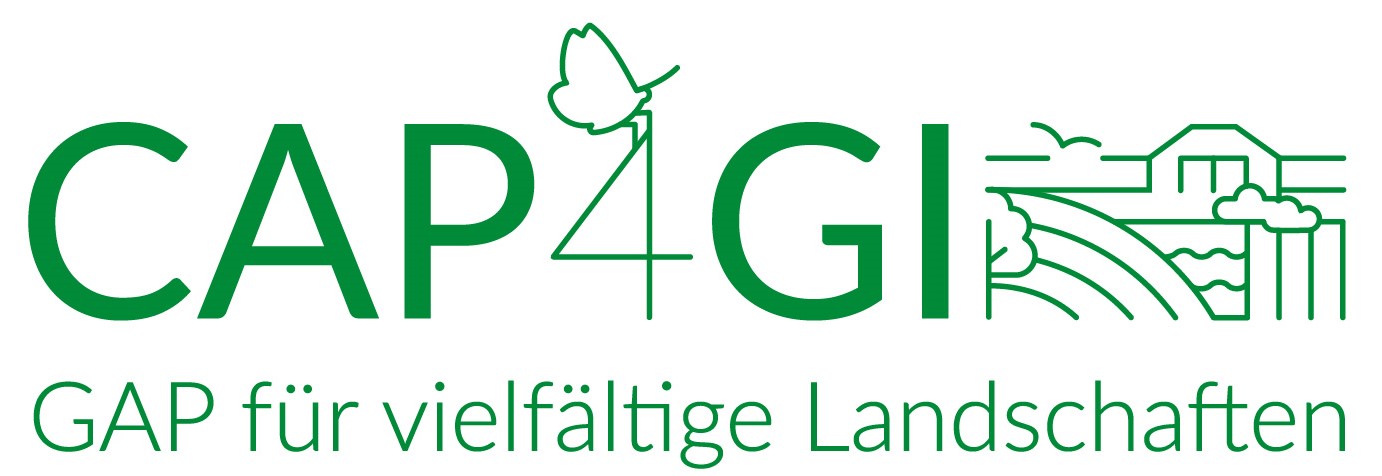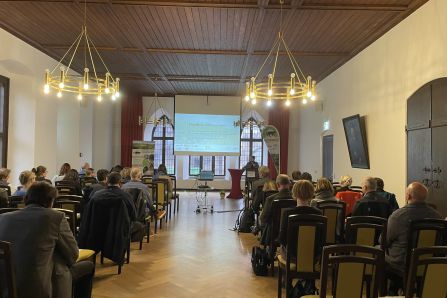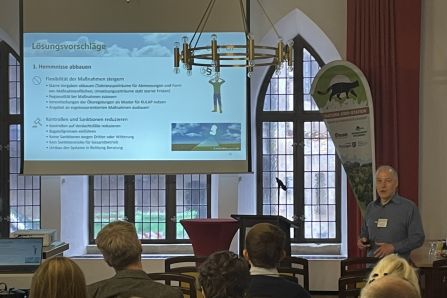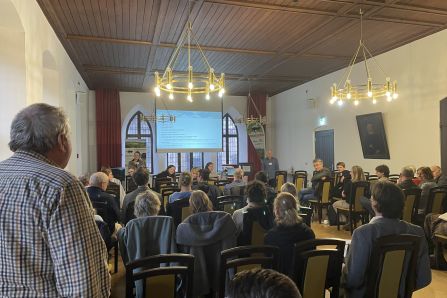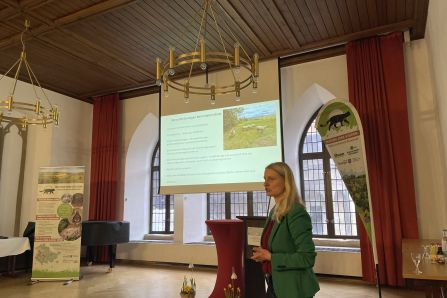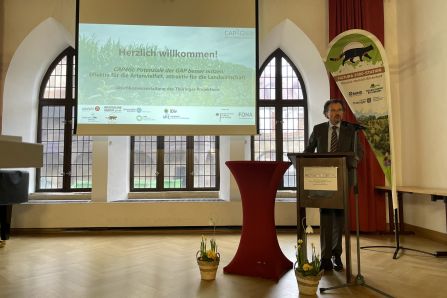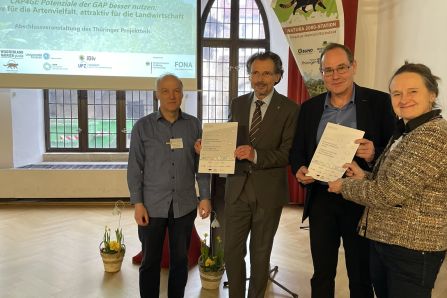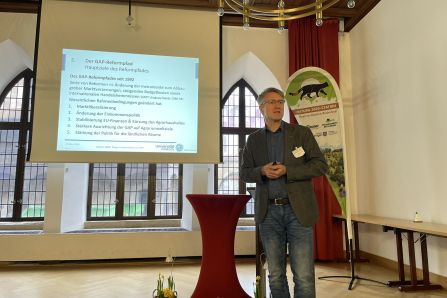Working Together for Biodiversity: Final Event of the Exchange Process in Thuringia
| Date |
Date
|
4 April 2025 - Attractive compensation, reduced bureaucracy, flexibility for regional adaptations, increased participation, and the courage to implement innovative funding models: These were the key themes of the regional closing event of the project CAP4GI, held on March 12, 2025, at the Augustinian Monastery in Erfurt.
Over nearly three year, the Wildtierland Hainich gGmbH organised with its Natura 2000-Station Unstrut-Hainich/Eichsfeld as practice partner of the CAP4GI project exchange platforms with farmers from the Eichsfeld, Thuringian Basin, and East Thuringian Sandstone regions, along with stakeholders from politics and administration. Together, they developed recommendations for improving agri-environmental measures (AEM). The primary goal was to make AEMs more attractive for farmers while increasing their ecological effectiveness.
Recommendations for a Better Agricultural Policy
The key findings, summarised briefly: Farmers generally demonstrate a strong awareness of biodiversity and are open to innovation. However, numerous obstacles hinder the implementation of environmental measures. To address this, it is crucial to ensure that measures provide tangible income benefits, reduce excessive bureaucracy, increase flexibility (e.g., to accommodate regional specifics), and minimise the risk of sanctions. Improved information sharing is also essential.
The project developed a model that addresses many of these barriers by focusing on consultation and advisory support. Additionally, innovative funding models, such as results-based measures or common welfare premiums, can make a significant contribution, especially when combined. Strengthening dialogue and actively involving farmers in designing environmental measures can lead to practical solutions. While research projects like CAP4GI can develop actionable options, it remains the responsibility of policymakers, in consultation with society, to take decisions.
Political Support for Biodiversity-Friendly Agriculture
The importance of these approaches was emphasised by political representatives at the event. Thuringia’s Environment Minister, Tilo Kummer, highlighted: “We can only achieve success in enhancing biodiversity in agriculture by working together. That’s why I appreciate the excellent collaboration with the Farmers’ Association and the farmers themselves. We all need intact ecosystems and biodiversity – and we can plan and design conservation measures in ways that farmers on the ground can support and implement.”
Mario Suckert, State Secretary at the Thuringian Ministry for Economic Affairs, Agriculture, and Rural Areas, added: “Farmers care deeply about nature and contribute significantly to preserving biodiversity and our cultural landscapes. However, conservation measures must also be economically and organisationally viable for farms. This year alone, we are supporting agricultural environmental and climate protection, as well as organic farming, with more than 40 million euros.”
Dr Ronald Brudler, project manager at Wildtierland Hainich gGmbH, explained the significance of the region for the project and summarised its outcomes: “Thuringia was selected as one of two project regions, representing agricultural landscapes in the East. We engaged in dialogue with many farmers and were able to convey their suggestions and concerns to policymakers at state, federal, and European levels.”
Prof. Dr Sebastian Lakner, Professor of Agricultural Economics at the University of Rostock, concluded: “The project demonstrated that agri-environmental measures can work and be scaled up if farmers are better involved. It is now up to the ministries to take up the project’s findings and push for their implementation.”
The recommendations for Thuringia are available here (in German only).
